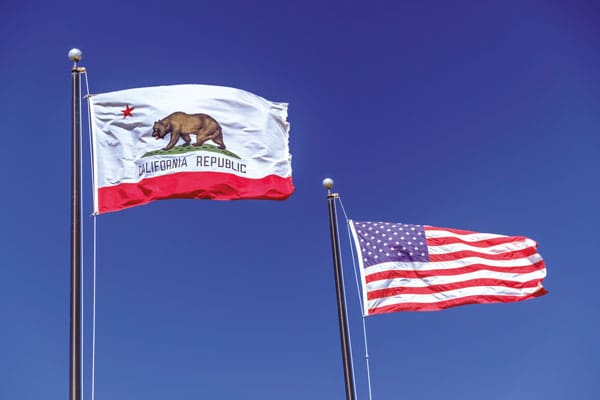
You know Barnes & Noble, the big box bookstore operating all across the US. They just won a nice victory against the CA SBE in the CA Superior Court. They are not a client of ours, but according to the published court case, here are some relevant facts regarding the corporate structure, during the applicable tax period.
They had a parent company, let's call it BN. BN had a number of subsidiaries. These included subs we'll call Booksellers (owned 100%), BN.com (owned 100%) and BN.com LLC (owned 40% by BN and 40% by another unrelated company and 20% by BN.com. That's a mindful, but it's important. BN.com LLC is the plaintiff in this case, at it is the Internet retailer. Booksellers (the 100% sub of BN) is the company that operates the actual brick and mortar stores. It is not an owner of the plaintiff, but it shares some common owners.
They were careful to set up this Internet reseller so that it would not have sales tax nexus in other states. They had no physical presence in CA for one thing. They were housed in a separate building from other BN entities, the management of the plaintiff was different and distinct. And finally, the plaintiff did not allow its customers to return books or other products.
States have used these factors and others to argue that while a dotcom entity itself may not have a physical presence in their state, they are using their sister companies as agents in the state. That agency relationship is what gives the states the right to force the dotcom to collect sales tax. California was successful in the Borders Online case, but in that situation, the online entity had substantially overlapping boards of directors, and perhaps most importantly, the brick and mortar stores accepted returns and their empoyees actively solicited business for the online entity.
Well the plaintiff in this case did not meet any of the criteria commonly used by the states. But that didn't stop CA from going after them. So what was the plaintiff doing that made CA think they should register and collect tax? Not much. But CA thought it was sufficient.
BN.com LLC, the Internet retailer, put coupons in Bookseller's customers' shopping bags adverstising the existence of the dotcom and offering a discount on online purchases. That's it. They didn't even ask Booksellers to stuff the coupons in the bags -- they hired an independent vendor to do that.

CA argued that on the "basis of the coupons alone" Plaintiff was "retailer engaged in business in the state" with a "substantial nexus in California". They contended that Booksellers acted as Plaintiff's agent.
The Superior Court said this was not enough of a connection or enough of a relationship to call it an "agency relationship". They specifically said that "the fact that Plaintiff and Booksellers are sister corporations does not support a finding of fact that Booksellers as Plaintiff's agent." They also pointed out -- much to the chagrin of CA, I'm sure, that the "concept of agency requires something significantly more" than passing out coupons. They say this, and this helps: "An essential element is that the agent (or representative) must have the authority bind the principal..."
The bad news is that CA thought they had a good case here. The bad news is that what this case really says is that you really have to go to great lengths not to have nexus. I think most dotcom affiliates of brick and mortar retailers are concluding that the risk of losing a case like this is not worth the effort of setting the structure up in just the right way to avoid a finding of nexus.
My opinion is that more and more people buy stuff online because its convenient to do so. Being able to return something you don't like, or doesn't work to a brick and mortar makes many people more inclined to shop at a brick and mortar dotcom affiliate, even if they still have to pay tax to do so.
We have a copy of the case available on our website if you'd like it.
We care about your data — privacy policy.